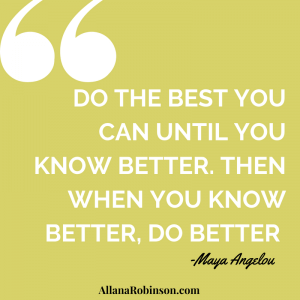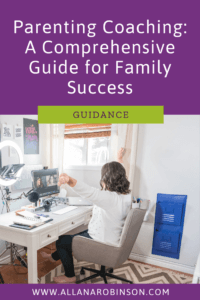You can watch the video version of this post on my Facebook page.
Straight up front- I’m going to warn you that this topic might be triggering for some people so just keep that in mind.
I’m going to be perfectly honest with you, I can’t believe that I have to do this. It boggles my bloody mind that this needs to be said out loud, podcasted, and put in print. Maybe I’m really naive but I genuinely thought that the human race as a whole had evolved enough that this wouldn’t be necessary, but APPARENTLY NOT. So first I’ll give some context because I’m absolutely positive most of my followers are as confused as I am. During the first week and a bit of July, I had to delete 4 comments in my Facebook group about hurting children to teach them a lesson. Which- in the grand scheme of things- 4 posts in a group of 32 hundred people. Maybe most Facebook group hosts wouldn’t find that alarming- BUT I DO. Because my group is NOT that kind of group. We have a very specific culture which is pretty thoroughly outlined in our group description. My group’s culture is something I am INSANELY proud of- so I may be taking this a bit more personally than is really necessary, I’ll own that- but I have NEVER had to shut down a topic like this repeatedly in the 3+ years of admining my group. So I was like- what the hell?! Now, admittedly, we’re getting kinda big. In the last month, we’ve added almost 700 members. So we appear to have reached a tipping point where new members are coming in faster than we can educate them- which I am making some changes to hopefully help address that- if you’re in the Posse already- go poke around. If you’re NOT in the Posse already, what the heck are you waiting for?
But anyways, LONG STORY SHORT- I made a post basically putting everyone on warning that suggestions of corporal punishment aren’t acceptable in our group and that I couldn’t believe I had to actually do this but I was going to amend the rules to reflect that. And then someone felt it appropriate to say “Well when you google it, that’s the suggestion that comes up.” 
Apparently- it DOES actually need to be said out loud, so I’m going to go there and say it out loud.
LET’S TALK ABOUT WHY WE DON’T USE CORPORAL PUNISHMENT.
BIG FLASHING TRIGGER WARNING- this might be difficult for some people to listen to- so if that’s you- it’s okay- close the window, turn off the podcast- go about your day and we’ll see you later. K?
1. Hitting children teaches them to become hitters themselves. Biting children teaches them to become biters.
There is a startling amount of research that links corporal punishment with violence in the teenage and adult years. Almost uniformly, dangerous criminals, abusers, and generally dangerous people have a history of corporal punishment in their childhood. Children learn attitudes and behaviors through observation and imitation of their parents’ actions, for good or ill. It’s our MORAL RESPONSIBILITY to model empathy, caring, support, and trust to our children. Like breeds like. If we model hitting, or biting, or pushing- they’re going to believe that that is the appropriate way to express feelings of discontent and solve problems. Because they have no other tools in their toolbox, so they’re going to do the best with what they’ve got. Obviously, this generally leads to more behavior we deem unacceptable and more violence and it’s a self-perpetuating cycle. If we hit or bite our kids, they will hit or bite us or others.
2. Children do well if they can.
That isn’t an opinion- it’s a fact. There is no such thing as “bad kid.” There are children who have difficulty coping with sensory input, children who have difficulty processing emotions, children who have impulse control issues, children with task initiation deficits, children who have planning and prioritizing and organizing issues- BUT THEY ARE NOT INHERENTLY BAD KIDS. Which means that hitting, biting, spanking, or any other form of violence towards them is simply teaching them that if someone does something they don’t like- to respond exactly how you are. If I’ve said it once I’ve said it thousand times- and I’m not planning on stopping anytime soon so don’t hold your breath- punishment doesn’t teach. As John Holt wrote, “When we make a child afraid, we stop learning dead in its tracks.” As SOON as you distress a child, you put them in fight or flight, and you SHUT DOWN THEIR BRAIN. Nothing is getting in. It’s a defense mechanism. A child who is afraid and manipulated perseverates on feelings of anger and fantasies of revenge- they aren’t thinking about how to do better, they’re thinking about how to get back at you. Therefore, they learn nothing about how to handle or prevent similar situations in the future. We need to ACTIVELY teach our children what we want them TO DO and not expect that showing them what makes us angry will somehow magically communicate to them to do the opposite. That’s not how the brain works. Telling a child what NOT TO DO is NOT the same as telling them what TO DO. Focusing on giving our children tools to do better the next time is what creates better behavior, not fear.
3. Hitting your child destroys bonding.
It’s not human nature to feel loving toward someone who hurts us. Punishment, even when initially looks like it’s working, can produce only superficially good behavior based on fear, and at SOME POINT your child will get old enough to rebel against it. It destroys respect. Do you want to engage in problem-solving with people who you think are total assholes? I know I sure don’t. If I don’t respect someone, they’re DEAD to me. And I’m more likely to do something vindictive just to get a rise out of them than engage collaboratively with them. So why do we think that our children would react any differently? A lot of parents were corporeally punished and never listened to as children so they genuinely don’t have the skills to problem solve and collaborate with their child. Unfortunately, what this does if you’ve already stepped over the line into violence- is cause escalation. You jumped the shark. If you bite your child back for biting you- and they do it again- you’ve got nowhere to go. You’ve already started violence. Your literal only option- if you don’t know any better- is to bite HARDER. This is how corporal punishment turns into abuse VERY QUICKLY. Now, the GOOD NEWS- is that listening skills, collaboration skills, executive function skills, pro-social skills- they’re SKILLS and they can be learned. But you need to recognize that you- as a parent- are lacking skills and ACTIVELY engage in learning them. You can totally teach an old dog new tricks, but it’s going to take some conscious effort.
4. Your butt is an erogenous zone.
Hitting a child on their butt- spanking- can conflate pleasure and pain for children. Attention, is attention, is attention- it doesn’t matter if it’s positive or negative. It is ALL processed the same in the brain. So if your child is attention seeking and the way they know how to get it is through acting out- resulting in a spanking, what do you think that’s going to do them neurologically? It’s confusing as hell and has documented consequences into adulthood. And to add to that- even relatively moderate blows to the lower end of the spinal column send shock waves along the length of the spine. There are cases of children who have permanent nerve damage from spanking, and even DEATH- and not from severe beatings either. Several of the cases I read were classified as “mild paddlings.”
5. Physical punishment gives the dangerous message that “might makes right” and that it’s okay permissible to hurt someone as long as they are smaller and less powerful than you are.
This is how you have the big kids beating on the little ones. And when they become adults- hurting animals, manipulating those he feels are below him, and fearing those who have more authority than them. This is how we end up with the sad State of Affairs in the U.S., where children get their hands on BIG ASS GUNS and that single act makes them mightier than everyone around them- so now it’s easily rationalized that I can go shoot up the school because NOW I’m in the power position. Or domestic violence- I’m the man and I’m physically capable of overpowering my wife so I’m allowed to. We don’t want our children to get the message that them behaving well is equated with submission. Or that as long as you are the biggest and strongest you can do whatever you want. OR- that someone who is “mightier” than you has the right to your body. None of these things are messages we want to send to our kids.
All that to say- corporal punishment needs to go the way of the dodo if we’re going to have a functioning society where everyone feels safe. There’s a quote from Frederick Douglas that does “It’s easier to build strong children than to repair broken men.” That is EXACTLY what this is about. 90% of your brain development is done BEFORE THE AGE OF 5. That means that the early years- the years I’m teaching about- they’re BLOODY IMPORTANT. What children pick up and learn about the world in their early years literally shapes their ENTIRE LIFE. So no pressure- but it’s kind of important.
Now, if you’ve been using corporal punishment on your child and you’re freaking out a bit because you never really thought about it like that- you’re not screwed. It is NEVER too late to do better. You do the best you can until you know better, then when you know better, do better.
So if you’re sitting there ready to do better- we got you. I have a FREE audio packet of scripts for you that cover what my group feels are the 10 most crazy-making toddler and preschooler behaviors- and they’re going to give you an easy entry point into using words instead of your body. I’d also love for you to join us in the Parenting Posse– which is my free peer support Facebook group. One of our golden rules is that we don’t judge parents for where they’re coming from or how they’ve parented in the past- we teach, we don’t judge. So come on in and let us teach you how to do better. But I’ll let you know right now- suggesting corporal punishment as a solution to challenging behavior will get your ass grassed- it’s now officially in our rule book- so be aware that you’re coming to be taught, not to perpetuate poor habits.













